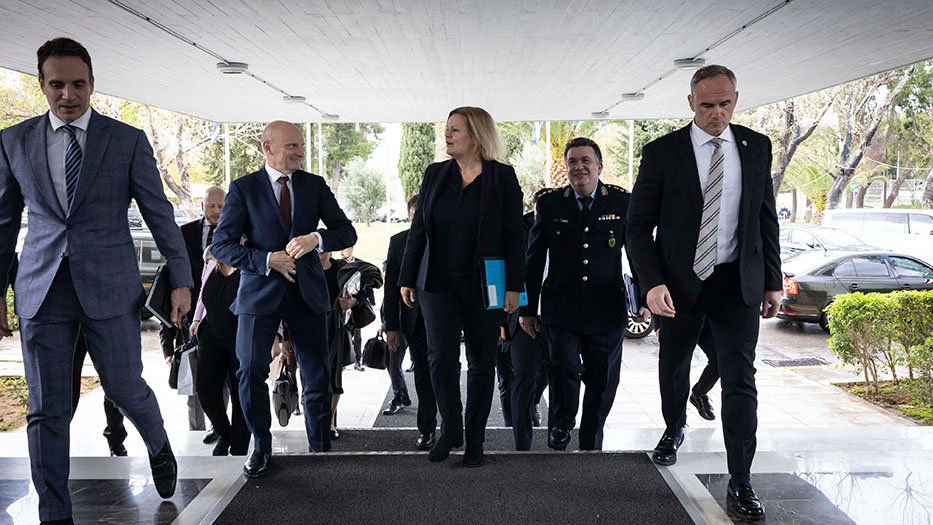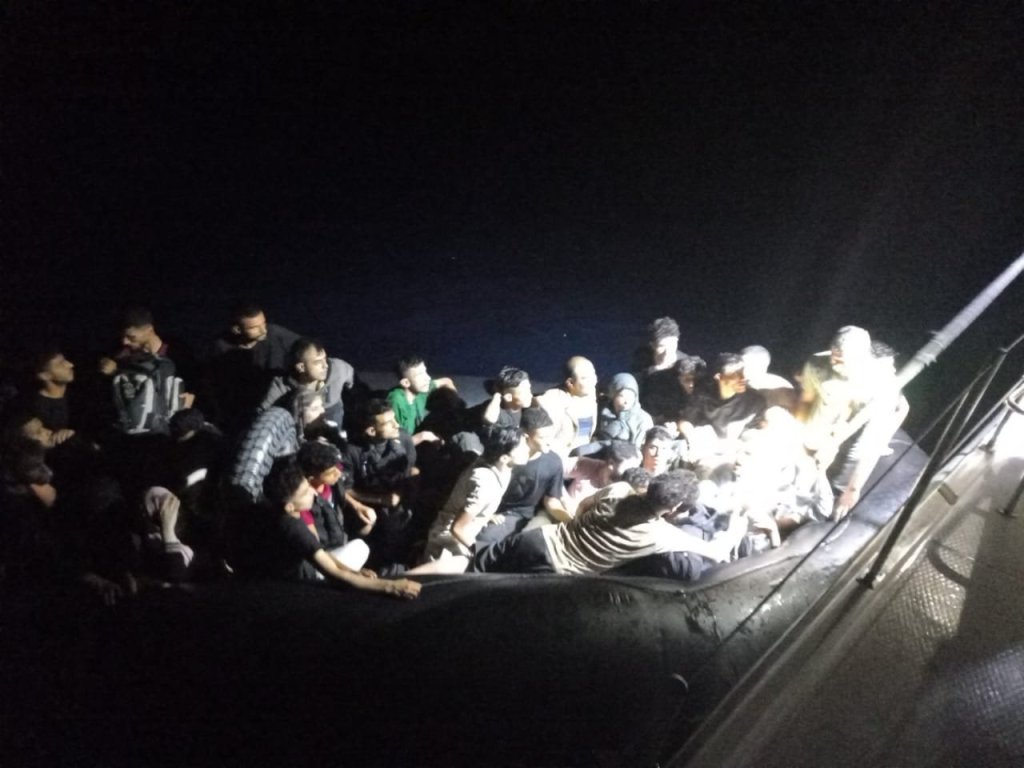Germany’s interior minister Nancy Faeser says Greece will play a deciding role in the success of the reformed European asylum system. She paid a short visit to Greece to discuss ways to further reduce irregular migration.
Nancy Faeser flew to Athens this week to discuss irregular migration, a critically important issue for both countries. Her goal in meetings with the Greek Migration Minister Nikos Panagiotopoulos was to talk about the new common rules on asylum, the so-called Dublin procedure for migrant returns, and cutting irregular migration.
"As a state on the EU's external border, Greece plays a crucial role in the successful implementation of the Common European Asylum System #CEAS," a statement by the German interior ministry said. At the same time, it raised the problem of Greece’s failure to stop asylum seekers from leaving for other European countries to make a fresh asylum claim. This so-called "secondary migration" has caused friction between the two countries, as hundreds of people have managed to cross Europe’s internal borders, undermining the existing rules.
In response, Germany and Greece want to make their sea and land borders harder for irregular migrants to cross. The interior ministry said Faeser agreed in talks with the Greek Minister for Citizen Protection Michalis Chrysochoidis on measures to boost cooperation on border security and stop migrant smuggling.
"We want to start as early as possible and support Greece in protecting the EU's external borders. Close and trusting cooperation is very important to us in preventing unauthorized secondary migration from Greece to Germany," Faeser was quoted as saying in a social media post.
Faeser also promised to commit to expanding Frontex operations at the EU’s Mediterranean borders, according to local Greek media reports.
The Greek migration minister, Panagiotopoulos, described cooperation on migration between Greece and Germany as "excellent" and said the two shared an understanding of the complex challenges facing both countries. He avoided words like "invasion", "migrant flows" or "hybrid attacks" which are often used in Greece in the context of refugees and asylum seekers, according to a report by DW.
Read AlsoGermany and Greece set on slowing migration numbers

What was not said
A number of topics were not publicly discussed during Faeser’s visit, as the Greek news website Ekathimerini notes. Among these was the thorny question of "burden sharing" – a reference to the potential mandatory redistribution of asylum seekers from Mediterranean countries to northern EU Member States.
Neither did the ministers discuss German plans to return asylum seekers to Greece on a large scale, despite speculation in the Greek media. Panagiotopoulos told DW that Faeser did not exert any pressure on the subject. Instead the two ministers agreed on the need for "streamlined repatriation" to third countries, reported another news site, iefimerida.
Faeser said Greece was doing "quite well compared with many other countries" on sending rejected asylum seekers back, according to the Greek news agency ANA-MPA. She also spoke about her own government’s efforts to speed up deportations. "There are now agreements with some third countries," Faeser said.
"We have simplified the laws in Germany so that we can carry out repatriations more easily … this is one issue on which we are working together."
Read AlsoGermany's deportation law – What has changed?
Returns to Turkey
For Greece, a major objective is to be able to return migrants to Turkey. It wants the European Commission to put pressure on the Turkish government to take back Syrians and others who manage to reach Greece across the Evros River or the Aegean Sea and to honor the 2016 EU-Turkey deal, which was designed to stop migrants from reaching Europe.
With that controversial agreement largely in tatters, the number of migrants arriving in the Greek islands from Turkey has surpassed 50,000 – more than in any year since 2019, UN data show. After meeting with ministers in Athens, Faeser traveled to one of the key arrival points - the Dodecanese island of Kos, which has seen more than 3,200 arrivals from Turkey in inflatable dinghies in the past 12 months.

The German minister reportedly wanted "to see with her own eyes" the conditions in which migrants are being held in the EU-funded facility. The five Closed Controlled Access Centers (CCACs) on the Greek hot-spot islands have been condemned by many human rights groups, which say that conditions there are sub-standard and that they expose vulnerable migrants to greater danger.
Similar centers may soon exist elsewhere in the EU under the new common asylum rules. In the next two years, the plan is to extend the hot-spot approach first set up in Greece and Italy in 2016 to other EU states, including Germany.
The plan has prompted widespread concern about the potential for human rights violations. In advance of the centers being set up at its borders, Germany has already introduced tighter controls. But on this topic, neither Faeser nor Panagiotopoulos are reported to have said a word.
Read AlsoExplained: Germany's strategy to bolster border controls amid immigration crackdown
